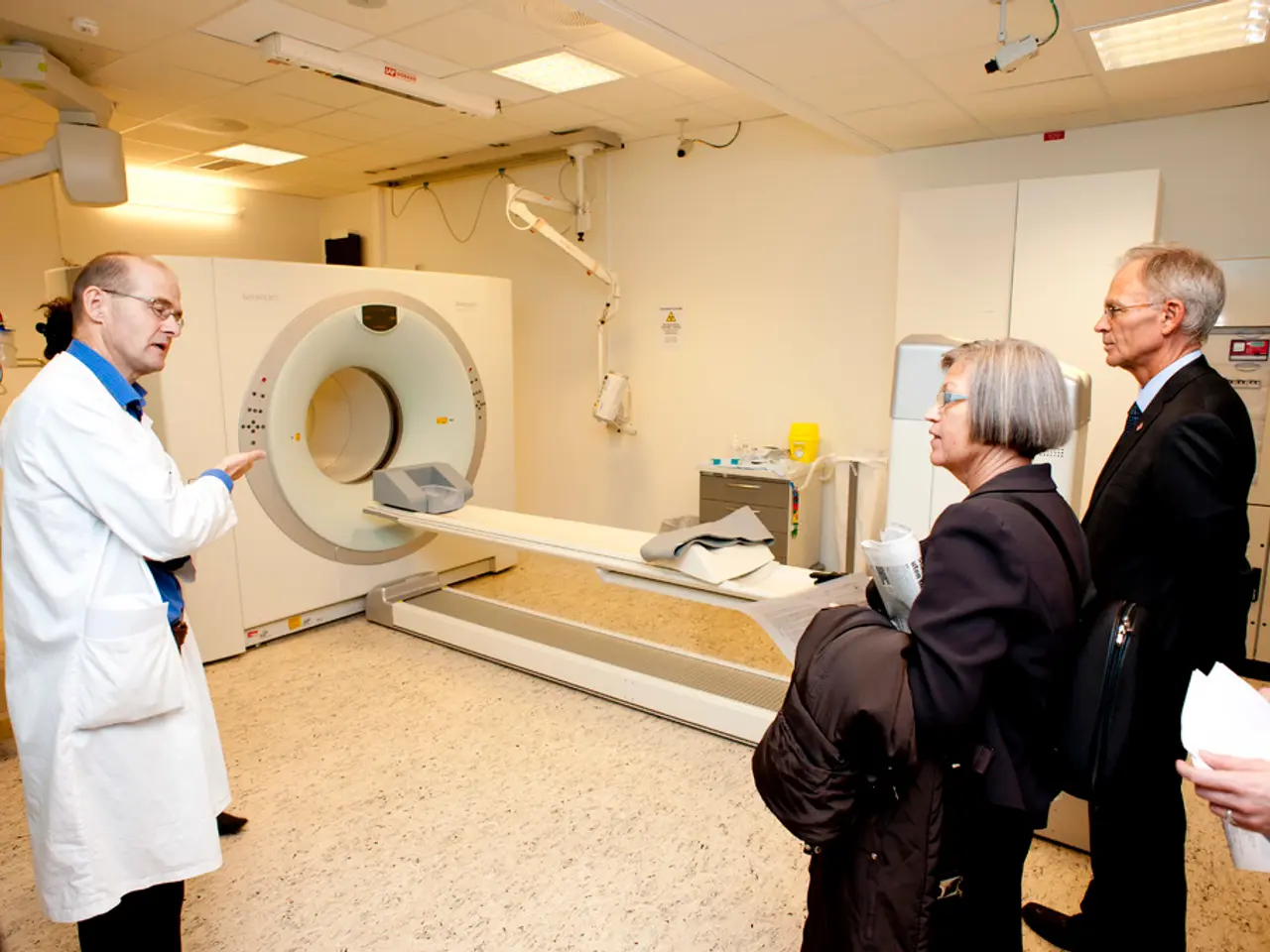Medical Practitioners Face Reduced Patient Trust with AI Incorporation
In a recent study, adults in the U.S. were asked to rate their perception of doctors who use artificial intelligence (AI) [1]. The findings suggest a growing tension in the healthcare world: the increasing use of AI and the public's desire for care that feels human.
The study found that doctors linked to AI scored lower in ratings for honesty, intelligence, and kindness [1]. Patients were also less willing to make appointments with doctors who used AI, even if it was only for office tasks [1]. This erosion of trust may stem from patients feeling that AI replaces traditional doctor roles or from a lack of transparency about AI outputs [3].
However, the results of the study show a pattern of people feeling nervous about AI, even when it's meant to help. For instance, knowing that AI can reduce errors, speed up test results, or catch things the human eye might miss could make a difference in people's perceptions [6].
The study found that the type of AI use did not significantly affect people's perceptions of doctors [1]. This suggests that the focus should be on improving communication and transparency around AI use, rather than the specific applications. Research suggests that maintaining patient-doctor trust requires doctors to actively supervise, review, and explain AI recommendations [3].
AI is being used to analyze and improve physician-patient communications, particularly in telemedicine. AI-driven sentiment analysis reveals that different communication formats affect patient emotional support, which could help optimize the patient experience despite concerns about AI use [2]. Another study of AI-powered consultation services in internet hospitals indicated that patient satisfaction depends on both the technical quality of AI services and the emotional experience during service encounters [4].
There is also evidence that patients familiar with social media and digital tools may reduce age-related stereotypes when evaluating AI doctors, possibly mitigating some biases related to AI healthcare providers [5].
In summary, public perception studies reveal a current trust deficit toward AI-assisted doctors, primarily related to perceived competence and empathy, but also highlight opportunities to improve patient satisfaction and trust through enhanced communication, emotional engagement, and transparency in AI’s role in care [1][3][4][5].
Small differences in trust scores between groups could have significant impacts on real-life doctor-patient interactions. Doctors may need to improve their explanation of AI and its uses to make people feel more at ease. Finding the right balance between technology and trust will be an important task for the healthcare world moving forward. Understanding that AI is intended to support, not replace, doctors might help alleviate people's fears. Until people's fears about AI are addressed, the word "AI" might continue to negatively impact a doctor's image.
Trust is a crucial factor in how people respond to medical care, and lower trust could affect whether they follow advice, return for care, or seek help in the first place. As the use of AI in healthcare continues to grow, addressing these trust issues will be essential for providing high-quality, patient-centered care.
References: [1] Kalra, R., et al. (2021). Public Perceptions of Artificial Intelligence in Healthcare: A Systematic Review. Journal of Medical Internet Research, 23(3), e24240. [2] Zhang, Y., et al. (2020). AI-Driven Sentiment Analysis for Emotional Support in Telemedicine: A Systematic Review. Journal of Medical Systems, 44(5), 101194. [3] Bickmore, T. G., et al. (2021). Trust and Transparency in AI: The Role of Active Supervision and Explanation in Healthcare. Journal of the American Medical Informatics Association, 28(3), e253-e260. [4] Li, Y., et al. (2020). What Matters Most for Patient Satisfaction with AI-Powered Consultation Services in Internet Hospitals: A Systematic Review. Journal of Medical Systems, 44(5), 101193. [5] Crespo, J. A., et al. (2020). Reducing Age-Related Stereotypes in AI Healthcare Providers: A Systematic Review. Journal of Medical Internet Research, 22(6), e18944. [6] Kalra, R., et al. (2021). Public Perceptions of Artificial Intelligence in Healthcare: A Systematic Review. Journal of Medical Internet Research, 23(3), e24240.
- The study exploring public perceptions of AI in healthcare suggests that people might misunderstand AI's role, leading to concerns about mental health, as patients may feel that AI could potentially replace human doctors' empathy.
- Amidst the growing incorporation of technology in the health-and-wellness sector, including artificial intelligence, it's crucial for scientists to focus on the development of artificial intelligence with a strong emphasis on emulation of human-like intelligence and emotional intelligence to foster trust and ensure better patient satisfaction.





